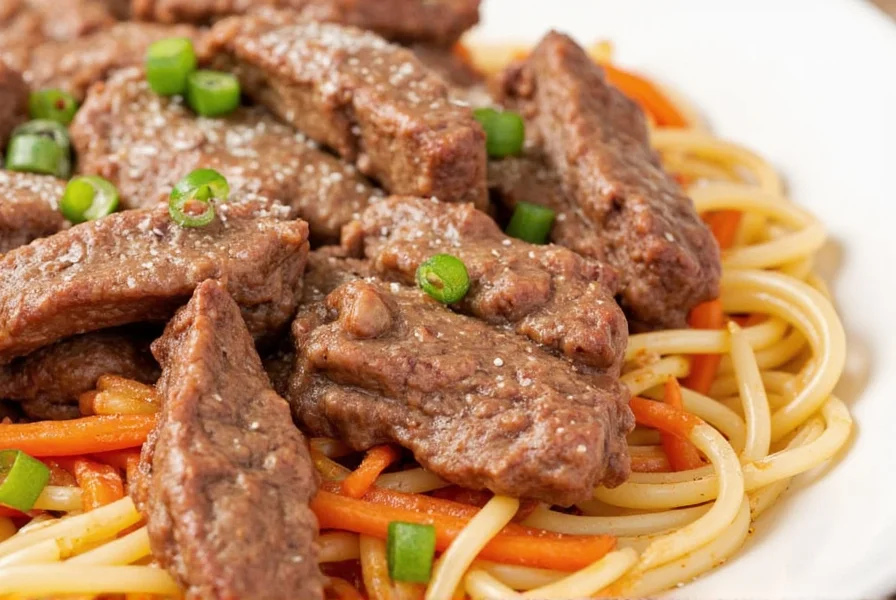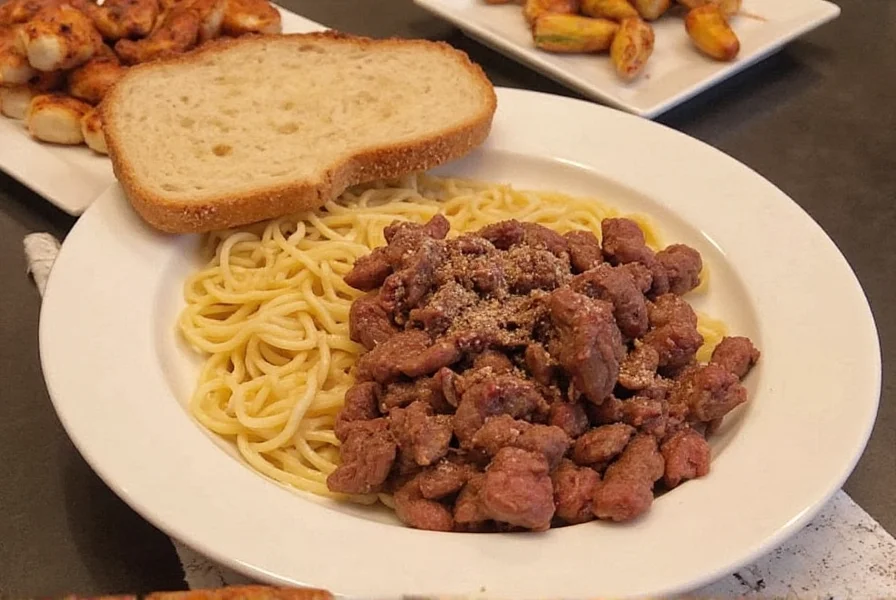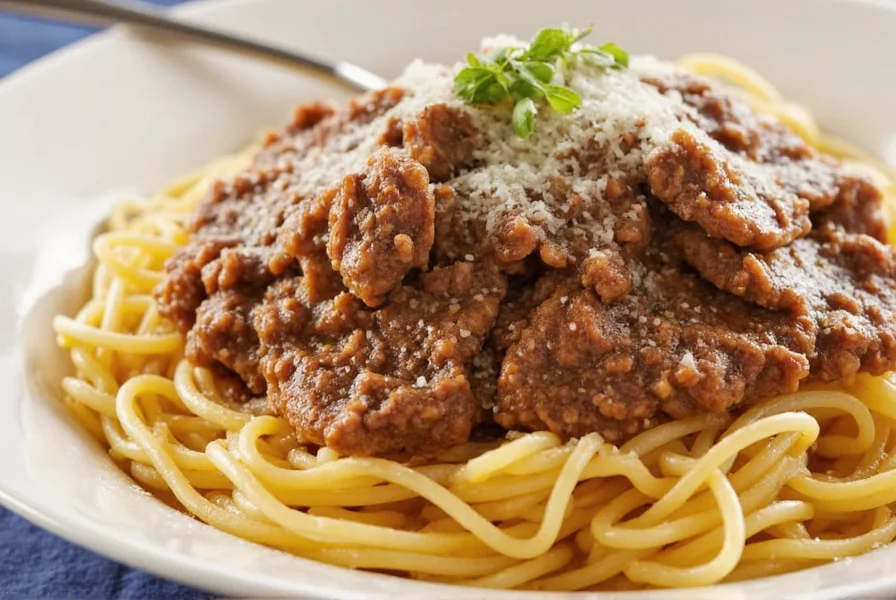To season beef for spaghetti perfectly, you need the right spices and precise timing. Here's exactly how to do it:
For 1 pound of ground beef, use: ½ tsp salt, ¼ tsp black pepper, ½ tsp garlic powder, ½ tsp onion powder, 1 tsp dried oregano, and 1 tsp dried basil. Add these after browning the beef but before adding sauce to maximize flavor absorption.
| Spice | Flavor Profile | Use Case |
|---|---|---|
| Salt | Briny, salty | Enhances all flavors |
| Black Pepper | Pungent, earthy | Adds warmth and bite |
| Garlic Powder | Umami-rich, pungent | Mimics roasted garlic |
| Onion Powder | Subtle sweetness | Builds depth without texture |
| Oregano | Herby, woodsy | Classic Italian staple |
| Basil | Floral, sweet | Fresh finisher |
| Red Pepper Flakes | Spicy, fruity | Adds kick (optional) |
Step-by-Step Process:
- Brown the beef: Cook 1 lb ground beef in a skillet over medium heat until no pink remains. Drain excess fat if using 80/20 beef.
- Add salt first: Sprinkle ½ tsp salt while beef is sizzling to dissolve evenly.
- Layer other spices: Add black pepper, garlic powder, onion powder, oregano, and basil. Stir for 2-3 minutes to infuse flavors.
- Add sauce: Pour in marinara and simmer 5-10 minutes. Finish with fresh basil before serving.

Common Mistakes to Avoid
- Adding salt too early (before browning) draws out moisture and prevents proper searing
- Using too much garlic powder (more than ½ tsp per pound creates bitterness)
- Skipping the simmer time after adding spices (needs 2-3 minutes to develop flavor)
Why Timing Matters
Seasoning after browning ensures the Maillard reaction creates rich browned flavors while spices penetrate the meat without interference from moisture. Adding salt too early causes the beef to steam instead of sear.
Historical Context & Practical Boundaries
This technique reflects 20th-century American-Italian culinary evolution. Smithsonian Magazine documents how Italian immigrants transformed traditional polpette (small meatballs served as appetizers) into larger meat portions over spaghetti by the 1940s, with ground beef becoming popular in the 1970s for weeknight efficiency. Modern adaptations prioritize speed while maintaining flavor integrity through precise spice timing. Source: Smithsonian Magazine
Key constraints affecting this method:
- Fat content dependency: Optimized for 80/20 beef; for 90/10 lean beef, reduce salt by ¼ tsp and add 1 tbsp olive oil during browning to prevent dryness (Culinary Institute of America)
- Sauce compatibility: Works with quick-simmer marinara (5-15 min); unsuitable for slow-cooked ragù requiring 2+ hours where spices must be added at the start
- Altitude adjustment: Above 3,000 feet, extend spice-infusion time by 2 minutes due to lower boiling points (USDA Food Safety Guidelines)
Source: Culinary Institute of America
Advanced Flavor Boosters
- Umami Bomb: 1 tsp Worcestershire sauce + ¼ tsp smoked paprika
- Meatball Mode: 2 tbsp grated Parmesan + pinch of nutmeg
- Herb Garden: 1 tbsp fresh rosemary (finely chopped) + 1 tsp lemon zest

How much seasoning for 1 pound of ground beef?
Use exactly: ½ tsp salt, ¼ tsp black pepper, ½ tsp garlic powder, ½ tsp onion powder, 1 tsp dried oregano, and 1 tsp dried basil. Adjust red pepper flakes to taste (up to ½ tsp).
When to add spices?
Add salt immediately after draining fat while beef is still hot. Add other spices after salt, then simmer 2-3 minutes before adding sauce. This prevents spices from burning and allows full flavor development.
Can I use fresh herbs instead of dried?
Yes, but use dried herbs for base seasoning (they withstand cooking heat). Add fresh basil or parsley as garnish at the end. Use 3x more fresh herbs than dried (e.g., 3 tsp fresh basil = 1 tsp dried).











 浙公网安备
33010002000092号
浙公网安备
33010002000092号 浙B2-20120091-4
浙B2-20120091-4